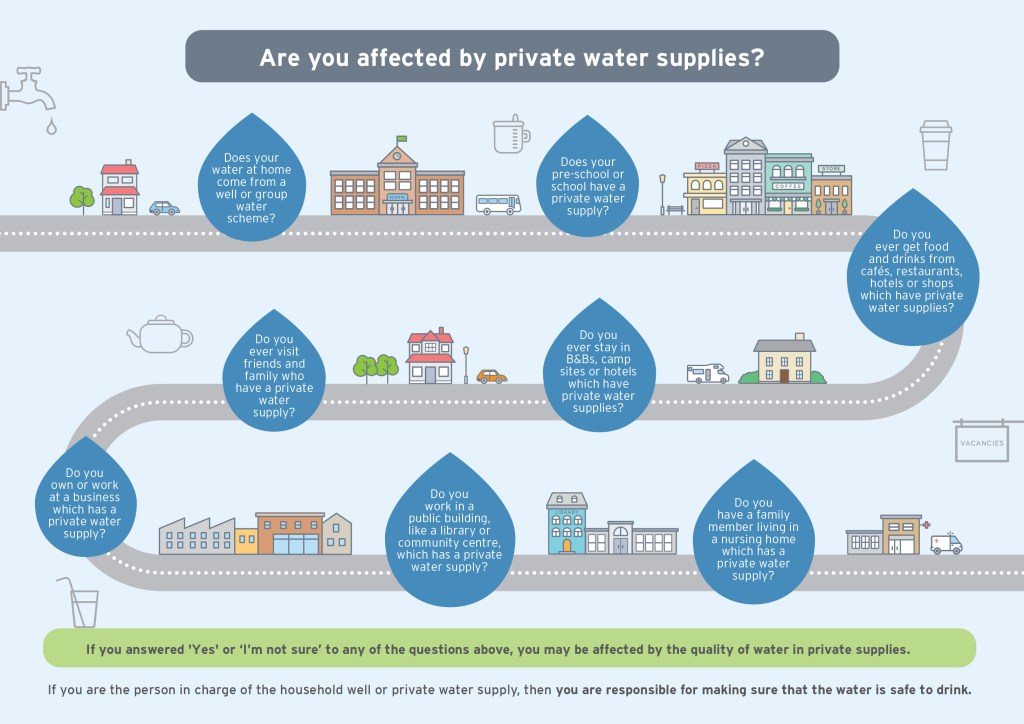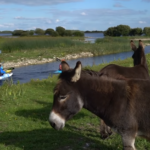The Community Water Development Fund supports communities developing water related…
The quality of drinking water in private water supplies is not good enough and is putting health at risk warns EPA
11 February 2020: The EPA today released the Drinking Water Quality in Private Supplies 2019 report. One million people in Ireland get their drinking water from a private supply and many more drink water from small private supplies like hotels, pubs and restaurants, crèches, nursing homes and national schools in their daily lives.
- More than 100 private water supplies failed to meet the bacterial standards for drinking water. Bacteria in our water supplies can make people very ill, particularly young children, the elderly, or those who are immunocompromised.
- One in five known small private supplies were not monitored in 2019. Water suppliers monitor water to ensure they are providing a clean and safe supply of drinking water.
- Water suppliers, local authorities and the Department of Housing, Local Government and Heritage need to act to improve the quality of private drinking water so that human health is protected.

88 of the 1,418 small private supplies monitored, failed to meet the standards relating to bacteria, which is the most important indicator of safe drinking water. Similarly, twenty of the 417 private group schemes monitored during the year, serving approximately 3,000 people, failed to meet the standards. This failure, in more than 100 private water supplies, is of significant concern and puts the thousands of users of these supplies at risk. The EPA also found failures to meet the standards for other parameters (for example, nitrates and trihalomethanes) that need to be addressed.
Critically 19 per cent of registered small private supplies, serving food businesses, nursing homes, creches and B&Bs were not monitored in 2019. If a supply has not been monitored, it makes it impossible to be confident that the water is safe to drink. Local Authorities must ensure that monitoring is undertaken in line with the Regulations.
“Consumers should be confident that their water is safe to drink. Water suppliers are obliged to make sure their water supply is clean and wholesome and is in compliance with the water quality standards. It is critical that monitoring is undertaken and, if issues are identified, action must be taken to protect human health.”
Dr Tom Ryan, Director of the EPA’s Office of Environmental Enforcement
The Department of Housing, Local Government and Heritage developed a Remedial Action List for Group Water Schemes in 2016. This is a list of 106 group water schemes, mainly in rural areas, that require upgrades to improve drinking water quality. The report shows that progress is being made and the Department has stated that it expects that all of these supplies will be addressed by the end of 2021.
“The Group Water Schemes identified on the list of 106 supplies need to make sure that their supplies of drinking water are safe now and for the long term to better protect public health. It is also essential that the Department of Housing, Local Government and Heritage puts in place improved governance and supports for the rural water sector so that appropriate actions can be taken to improve these supplies.
Andy Fanning, Programme Manager of the EPA’s Office of Environmental Enforcement
Learn more:
The report is available on the EPA website.







